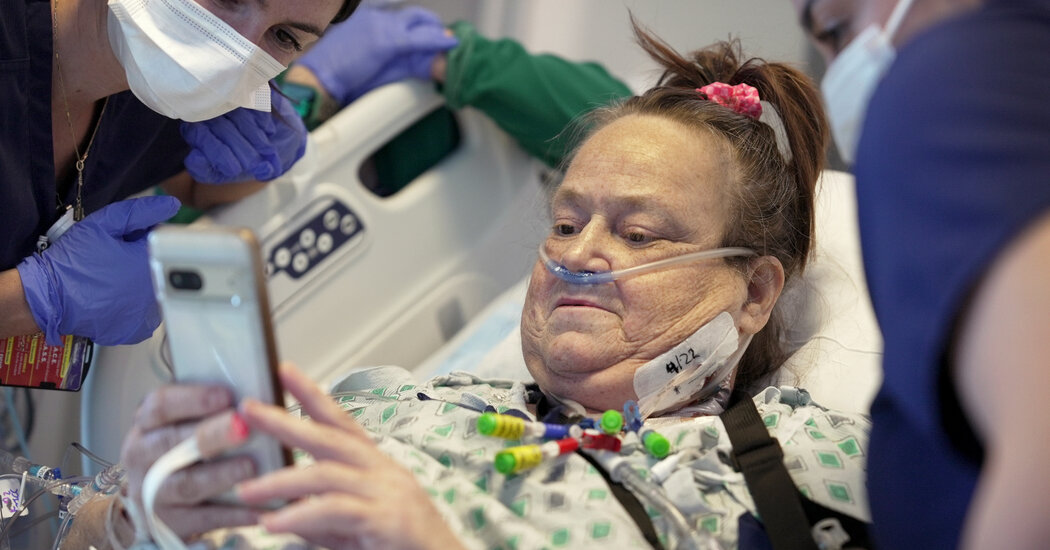
Surgeons removed a genetically engineered pig's kidney from a critically ill patient last week after the organ was damaged by inadequate blood flow related to a heart pump, according to officials at New York University's Langone Transplant Institute. which the woman had also received.
The patient, Lisa Pisano, 54, still hospitalized, has returned to renal dialysis after the removal of the pig's organ. She lived with the transplanted organ for 47 days, said Dr. Robert Montgomery, director of the institute. The kidney showed no signs of organ rejection.
“Lisa is in stable condition and her left ventricular assist device is still functioning,” Dr. Montgomery said, referring to the heart pump. “We hope to bring Lisa home to her family soon.”
“Lisa is a pioneer and a hero in the effort to create a sustainable option for people waiting for an organ transplant,” he added.
In April, Ms. Pisano became the second person to receive a kidney transplant from a genetically modified pig. Hers was a particularly complicated case: she suffers from heart and kidney failure and she received the organ only eight days after receiving a mechanical heart pump.
Ms. Pisano was at risk of dying without the heart pump, a device implanted in patients who need a heart transplant. But there is a critical shortage of available human kidneys from donors, and her heart disease has made her ineligible to receive one.
She is the first known heart pump patient to receive an organ transplant of any type, NYU Langone Health officials said. Patients with kidney failure are usually ineligible to receive a heart pump due to the high risk of death.
The first patient to receive a kidney from a genetically modified pig was Richard Slayman, 62, who underwent the procedure in March at Mass General Brigham in Boston.
He was well enough to go home from the hospital two weeks after surgery, but he suffered from complex medical problems and died within two months.
In recent years, great strides have been made in transplanting organs from animals to humans thanks to technological innovations such as cloning and gene editing.
However, the procedures are still experimental and so far only patients who are so sick that they cannot benefit from a human organ and could die without treatment have been allowed to receive animal organs.
The two pig kidney transplants this year were approved under the Food and Drug Administration's compassionate use, or expanded access, program for patients with life-threatening conditions.
